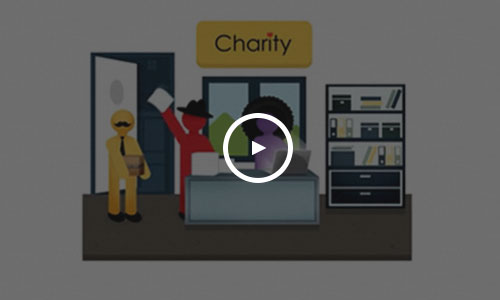At unlivable., we believe that all Hong Kong citizens should be given equal opportunities to thrive in healthy and sustainable homes, unsubjected to inhumane living conditions. Our project began as an attempt to raise awareness about the squalid environments residents of subdivided flats and caged homes are subjected to. We advocate for government regulations that ensure necessary hygiene and fire safety items, as well as machines that regulate air quality, are provided by landlords. We hope to improve the communication between landlords, occupants, and the government, while increasing the amount of fire and structural safety-risk inspections. We at unlivable. recognize the detrimental effects eliminating subdivided flats has on the ongoing housing crisis. We seek instead, for subdivided flats to be constructed with attention towards the maintenance of fundamental safety and living standards and building code. Our goal is to expand beyond raising awareness through clothing, by grouping fortunate individuals, and encouraging them to volunteer in local initiatives.Check out our Instagram & Website: @unlivable.hk www.unlivablehk.org
My Story
According to the five levels of Maslow’s Hierarchy of Needs, the first priority is Physiological Health, which serves as the base of our human necessities. Within this sector, shelter is a crucial physiological need that must be satisfied in order to grant security, social, esteem, and self-actualizing needs. With global warming continuing to intensify year after year, Hong Kong’s summer temperature average continues to grow. In 2017, Hong Kong’s summer average temperature was 28 degrees celsius, and fast-forward to today, the mean temperature currently is 29 degrees celsius. Subdivided flats are poorly ventilated and most tenants are not even provided with air conditioning services. During the scorching summers in Hong Kong, subdivided flats are fire-prone, and in the event of a fire, with fire exits less than 2 meters tall and 75 centimeters wide, it would be a miracle if all 30 people (per floor) evacuated safely. For example, in 2017, an original 6,000 square foot plot of land divided into 17 subdivided flats killed three in a fire, including a young woman and two young men, one of whom started the fire due to mental instability. Under these appalling conditions, it has been reported that those living in subdivided flats often have mental breakdowns.
Due to Hong Kong’s shortage of available space, real estate workers are forced to think of the best ways to maximize their profit, even when it means building up and dividing floors into tens of compact flats and risking the safety of those who inhabit it. Charging a median monthly rent of $4,000, the cost of a subdivided flat evidently outweighs the benefits.
How subdivided flats are formed is shockingly horrific. The original layout and walls of the flat are completely demolished, and the emergency exit and ventilation systems are exacerbated. Additionally, the drainage system of the subdivided flats are improperly engineered, leading to frequent leaking and contributing to worsened air quality. Therefore, following these procedures, the whole fireproof structure is completely abolished.
However, from the perspective of the Hong Kong government, their reserved savings have seemed to lessen the adversity. Surprisingly, the Community Care Fund has reserved $91 million to provide a subsidy to those living under these conditions, but this money was never used. Also, the Development Care Bureau understands that most tenants living in subdivided flats are singletons or those in poverty, and should subdivided flats be eradicated, some may end up homeless, or even worse. The accusations against the government’s lack of taking action have been brutal, thus the government should consider speeding up the building efficiency of public housing (Currently, there is a 4-year wait for public housing).
With subdivided flats increasing rent as property is increasing in value, the gap between poverty and wealth is gradually widening. One of the main causes constituting the high demand for public housing in Hong Kong is the limited amount of property an ordinary Hongkonger can buy with their whole salary. An average Hong Konger can only buy a flat less than 500 square feet with their full salary, and with Hong Kong’s supply of public housing failing to meet the demand for public housing by over a third, subdivided flats are therefore the only choice for many. It was reported that around 277,000 Hong Kongers queued for public housing in 2017 mainly due to unaffordable private housing and severely low wages. These long waiting lists for public housing have deeply contributed to an increased number of subdivided flats.
As of 2018, the government has already taken some action and responsibility to help eradicate subdivided flats. Although the government has been urged to accelerate the approval of land development, they have implemented a new housing policy that has sanctioned an increase of public houses. Furthermore, this policy has increased the land supply and financial reserve for those who live in subdivided flats.
One way to improve the atrocious conditions of subdivided flats which involve the assistance of both the owners and government are for owners to request loans from the government in order to maintain the safety and living standards of the subdivided flats. This should be especially compulsory for subdivided flats in old buildings as there will be more need for improvement works because of the low safety conditions. Building Department officers should be obliged to discuss the issue of these subdivided flats shall the owners not comply with this because occupants need to live in a safe and protected area. For example, emergency exits need to be properly designed and vetted (approved by the Buildings Ordinance), electrical appliances and ventilation systems need to be accordingly maintained, and more severe consequences if the owner does not comply with these safety standards. If this solution does not work, the government needs to accelerate the approval of land development, increase the land supply and financial reserve, and create and put together a new public housing plan which will benefit the welfare of those living in subdivided flats.
Our work at unlivable. centers around educating and informing individuals on the harmful effects of the housing crisis in Hong Kong. Through the distribution and sale of self-designed unlivable. hoodies, not only can poverty-related charities benefit from the proceeds, but consumers can also raise awareness about this dire issue by wearing our products. We also spend time organizing local events in conjunction with local charities, providing support for poverty-stricken communities in Hong Kong. However, we realize that this may not be enough. Through our platform as an organization, we hope to generate donations that can assist with Project Home Works, a project started by Habitat for Humanity in Hong Kong. Their project prioritizes the refurbishment of homes in Hong Kong, advocating for better living and injecting hope into society. Consider donating today, Habitat for Humanity can benefit from your support as they seek to amend the unsatisfactory living conditions many Hong Kong residents endure.





